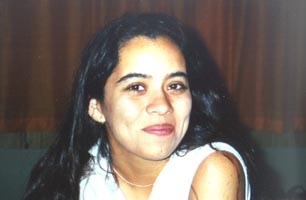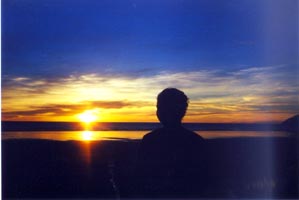To be honest the image of Patagonia, prior to my arrival on the plains of Chubut, consisted of penguins and a clothing label growing out of the diverse terrain in the area. I was accompanying ten other students – some I hardly knew – and three professors on the maiden expedition of a new program for Dickinson College. Studying abroad independently my junior year, it was also the first time I was traveling and working with a group under the auspices of Dickinson College itself. Fifteen days later I left with a wealth of warm memories and five very successful interviews.
In one way or another the unifying thread of the whole program was people – the people we are, the people that live in Chubut now, and the people whose stories came alive through the memory of friends and family. Whether we were staying with families or meeting new friends out on the street, the people of Comodoro Rivadavia and Rada Tilly treated the students with kindness, compassion, and intrigue; we wanted their stories as much as they wanted to know ours.
Day after day the threshold of learning increased, spreading our own learning curve long and wide. For many people the language was a very important portion of the program, learning to interact in another language and find the patience to understand and work with those that are less adapt the language itself. I thought the oral interviews were going to be a disaster at first with only a few in the group speaking fluent Spanish. Gladly, I was never more happy to be completely wrong. The words of the people appeared to come alive and take on wild and exciting shapes in the stories captured on film – language no longer mattered. Personally, my interviews were conducted in Spanish, Portuguese, and English.
On an academic note, it is funny to admit I never thought research could be so much fun adding incisive thoughts from the lives of others to my own life as an American immigrant. Many times the nostalgia interwoven in the stories of people was akin to my own experience as an American immigrant. Secondly, it was wonderful to work with a truly diverse group – professors from two countries, women, men, underclassmen, upperclassmen, Americans and international students, — it was a dynamic combination.
While I wish I could delineate each and every memory I retain from the experience, I will limit my comments to a word of thanks. I learned more than I ever thought was possible on this trip from each and every person I interacted with. I would like to thank the people for sharing their stories, my family for welcoming me as a second daughter, and my colleagues for their diligent work and effort to capture the length and breath of immigrant experiences.
Thank you.
- Traveling opens up new opportunities to meet new people and share different point of views. In this picture: University of Patagonia student María José Garrido.
- Patagonia opened my eyes to new ways of seeing.
Return to Reflections page.

